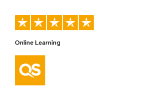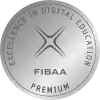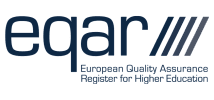
Sports Nutrition
The Sports Nutrition course delves into the specialized field of nutrition tailored for athletes and active individuals. It covers the principles of fueling the body for optimal performance, enhancing recovery, and supporting overall health within the context of sports and exercise.
Overview

Sports Nutrition
Course Learning Outcomes (CLOs) and SLOs
Course Learning Outcomes (CLOs) typically include:
Nutrient Requirements for Athletes: Gain understanding of the specific nutritional needs of athletes, including macronutrients (carbohydrates, proteins, fats) and micronutrients (vitamins and minerals).
Nutrition Timing: Learn about the timing of nutrient intake in relation to training and competition to optimize performance, recovery, and muscle building.
Hydration and Electrolyte Balance: Understand the importance of hydration and electrolyte balance in maintaining optimal athletic performance and preventing dehydration and cramping.
Supplements and Ergogenic Aids: Explore the use of dietary supplements, sports drinks, and ergogenic aids in sports nutrition, considering safety, efficacy, and regulatory issues.
Student Learning Outcomes (SLOs) are specific goals for students, such as:
Nutritional Assessment of Athletes: Assess and analyze the dietary habits and nutritional status of athletes to recommend personalized nutrition plans.
Meal Planning and Preparation: Develop skills in planning and preparing nutritionally balanced meals and snacks that support training goals and performance outcomes.
Sports Nutrition Counseling: Provide effective nutrition counseling and education to athletes on topics such as weight management, fueling strategies, and recovery nutrition.
Evidence-Based Practice: Apply evidence-based practices and research findings in sports nutrition to optimize athletic performance and overall health.

Benefits
With AI, the world is your oyster! It is an emerging field, rapidly growing, ever evolving and watched with a keen eye by industries and markets globally. There are many benefits to an education in AI:
In demand Career
With a Bachelor in artificial intelligence you are equipped with in-demand skills in the rapidly growing field of AI. Knowledge of developing AI systems, data analysis and AI techniques makes you valuable across industries, right from healthcare, finance, tech and more. This degree prepares you for career that has multiple options for diversification. AI professionals include AI engineers, data scientists, machine learning specialists, AI consultants, researchers and more. AI is transformative technology that is revolutionising the world. With an education background in AI, you are set up in an in-demand career field with an exciting future ahead!
Innovation and advancement
Applied AI is all about finding solutions and using AI systems to make life simpler. Applied AI draws on its solid foundation in Computer Science to analyse and provide solutions for real world challenges. You are prepared to address complex problems and contribute meaningfully in domains like healthcare diagnostics, fraud detection, autonomous vehicles, personalised recommendations and more. Being able to apply AI techniques for solving tasks makes for an extremely rewarding and impactful job role!
Solving real world problems
AI aims to constantly bridge the gap between natural intelligence and machine learning - it is a field of cutting edge research, innovation and advancing technology. This makes it ever evolving, with new algorithms, models and techniques being developed. By studying AI at an undergraduate level, you gain a strong foundation in AI fundamentals that help you better understand the latest advancements. You step into a career that empowers you to push the boundaries of AI, contribute to research and development and drive innovation in the field.
100% International
Study at your own pace from anywhere in the world
Recommended by 96% of our graduates
According to our latest alumni survey
50,000+ students
enrolled in Germany’s largest university
Study contents
Contents
Introduction
Importance of proper nutrition for athletes
Overview of the role of sports nutrition in performance and recovery
Types of athletes and their specific nutritional needs
Macronutrients
Carbohydrates:
Importance of complex carbohydrates for energy production
Examples of complex carbohydrates (whole grains, fruits, vegetables)
How to include complex carbohydrates in a sports diet
Protein:
Importance of protein for muscle repair and growth
Examples of high-quality protein sources (lean meats, fish, eggs, dairy)
How to include protein in a sports diet
Fat:
Importance of healthy fats for energy and hormone production
Examples of healthy fats (avocado, nuts, seeds)
How to include healthy fats in a sports diet
Hydration
Importance of adequate hydration for athletes
How to calculate individual fluid needs
Tips for staying hydrated during exercise and competition
Meal Timing and Composition
Pre-workout meal options
Post-workout meal options
Snack options during exercise and competition
Meal timing and composition for optimal performance
Supplements
Overview of common sports supplements (protein powder, creatine, branched-chain amino acids)
Benefits and potential risks of each supplement
How to choose the right supplement for your needs
Food Allergies and Intolerances
Common food allergies (peanuts, tree nuts, soy, gluten)
Common food intolerances (lactose intolerance, gluten intolerance)
Managing food allergies and intolerances as an athlete
Travel Nutrition
Challenges of eating healthy while traveling
Tips for packing healthy snacks and meals while on the go
Admission
Admission Criteria
Earn a Bachelor's Degree: A bachelor's degree in a field such as nutrition, dietetics, exercise science, or a related field is typically required for most entry-level positions in sports nutrition.
Gain Practical Experience: Gain practical experience by volunteering or interning with a sports team, athletic department, or sports medicine clinic. This will help you build connections and gain hands-on experience working with athletes.
Consider a Graduate Degree: A master's degree in sports nutrition or a related field can be beneficial for advanced positions or specializing in a particular area of sports nutrition.
Get Certified: Consider obtaining certification through organizations such as the Commission on Dietetic Registration (CDR) or the International Society of Sports Nutrition (ISSN). These certifications demonstrate your expertise and commitment to the field.
Stay Current: Stay up-to-date with the latest research and trends in sports nutrition by attending conferences, reading scientific journals, and participating in online forums and discussions.
Some popular certifications for sports nutrition professionals include:
Certified Sports Dietitian (CSSD)
Certified Specialist in Sports Dietetics (CSSD)
Certified Nutritionist (CN)
Registered Dietitian (RD)
Certified Nutrition Coach (CNC)
Admission Requirements for Sports Nutrition
Programs
Admission requirements for sports nutrition programs vary depending on the institution and program. However, here are some common requirements:
Bachelor's Degree: Most programs require a bachelor's degree in a related field such as nutrition, dietetics, exercise science, or biology.
GPA: A minimum GPA of 3.0 is typically required.
Prerequisite Courses: Students may need to complete prerequisite courses such as anatomy, physiology, biochemistry, and statistics.
Science and Math Requirements: Many programs require students to have completed science and math courses such as biology, chemistry, and calculus.
Letters of Recommendation: Some programs may require letters of recommendation from academic or professional references.
Personal Statement: Students may need to submit a personal statement outlining their career goals and interests in sports nutrition.
Careers
Career Paths
Registered Dietitian (RD) or Registered Dietitian Nutritionist (RDN): A RD/RDN is a healthcare professional who specializes in the application of nutrition principles to promote health and prevent disease. They work with athletes to develop personalized nutrition plans to improve performance, recovery, and overall health.
Sports Dietitian: A sports dietitian is a specialized RD/RDN who works with athletes to optimize their nutrition for performance, injury prevention, and recovery. They may work with individual athletes, teams, or sports organizations.
Nutrition Consultant: A nutrition consultant works with athletes, teams, or organizations to provide personalized nutrition guidance and support. They may focus on specific areas such as endurance, strength, or power training.
Sports Nutrition Coach: A sports nutrition coach works with athletes to develop customized nutrition plans and provides guidance on meal planning, supplementation, and hydration strategies.
Research Scientist: A research scientist in sports nutrition conducts studies on the effects of nutrition on athletic performance, designs experiments, and analyzes data to advance our understanding of sports nutrition.
Product Development: Product development specialists in the food industry create new products or reformulate existing ones to cater to the needs of athletes and sports enthusiasts.
Food Industry Professional: Professionals in the food industry, such as product managers or marketing specialists, work to develop and market products that meet the needs of athletes and fitness enthusiasts.
Public Health Specialist: Public health specialists work to promote healthy eating habits and physical activity through education, policy development, and community outreach.
Student reviews
Coming Soon.
Tuition fees
All our study programmes include the following benefits
- Teaching and study material
- Marking of your end-of-module exams
- Monthly live and recorded tutorials
- Use of the online campus
- Individual study coaching
- Online exams
- Career coaching
- Learn English for free
Our global recognition

IU is recognised by WES Canada and U.S., which means your degree can be converted to points in the local system for purposes of immigration, work, or studies.
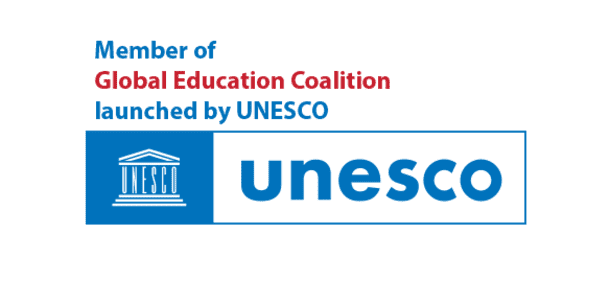
As the first EU institution in UNESCO's Global Education Coalition, IU is committed to ensuring accessible quality education to students in crisis worldwide through free online micro-credentials.
Our company partners
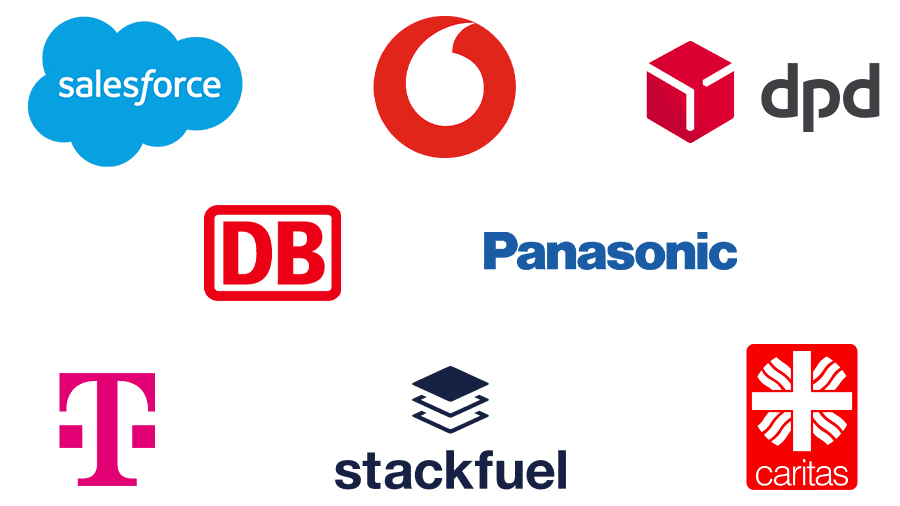
For over 20 years, IU has established partnerships with leading global companies. This offers you the chance to gain firsthand experience through internships and projects and allow us to adapt our learning content to the ever-evolving needs of the labour market. You'll benefit from an education designed to bridge the gap between theory and real-world practice, ensuring your readiness for your future career.
Recognition
Recognition of previous achievements
Have you already completed a training course, studied at a university or gained work experience? Have you completed a course or a learning path through EPIBM LinkedIn Learning, and earned a certificate? Then you have the opportunity to get your previous achievements recognised, and complete your studies at EPIBM sooner.

Save time:
Skip individual modules or whole semesters!
Even before you apply for a study programme, we’ll gladly check whether we can take your previous achievements into account: 100% online, no strings attached. Simply fill in our recognition application form, which you can find under the content section of each study programme's webpage, and upload it via our upload section. You can also e-mail it to us, or send it via post.
Send an email to [email protected] to find out which previous achievements you can get recognised. You can get your previous achievements recognised during your studies.
Recognition files
Autonomous vehicles developer
With AI, the world is your oyster! It is an emerging field, rapidly growing, ever evolving and watched with a keen eye by industries and markets globally. There are many benefits to an education in AI:
That’s why after graduating, you’ll be able to apply your professional skills and knowledge, and work for development teams at any sector you find appealing.


Augmented reality (AR/VR) developer
Virtual (or augmented) reality isn’t all just fun and games, as great and enjoyable as that aspect is. It can also be used for groundbreaking social and psychological research, defensive purposes and therapy.
With an Applied Artificial Intelligence degree from IU University of Applied Sciences, you can take part in this vital field of technological development, and work on a wide variety of interesting projects.
Change what the world thinks about the possibilities that AI offers, and make a real difference in people’s lives, while enjoying every step of the process.
F.A.Q
Frequently Asked Questions
You might also be interested in these study programmes
Accredited and certified







